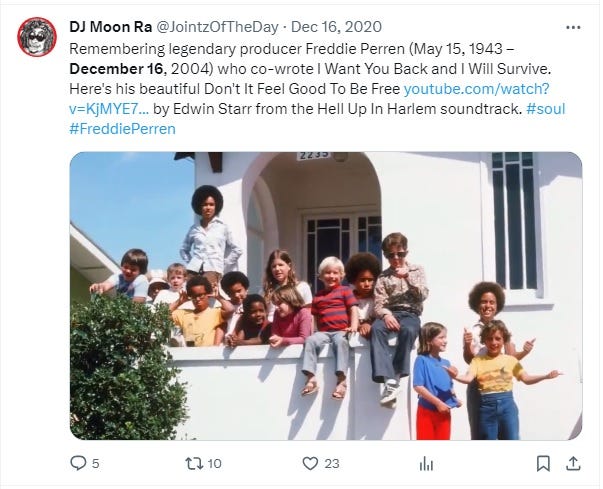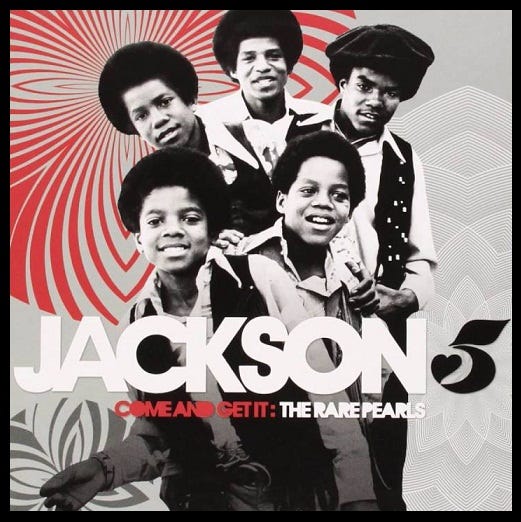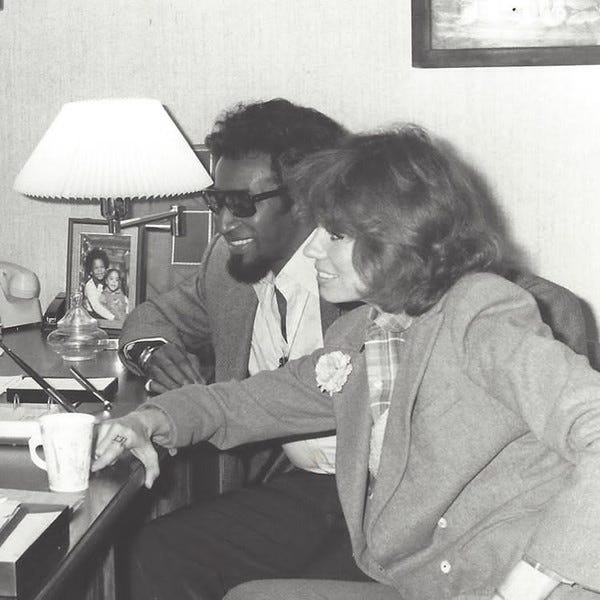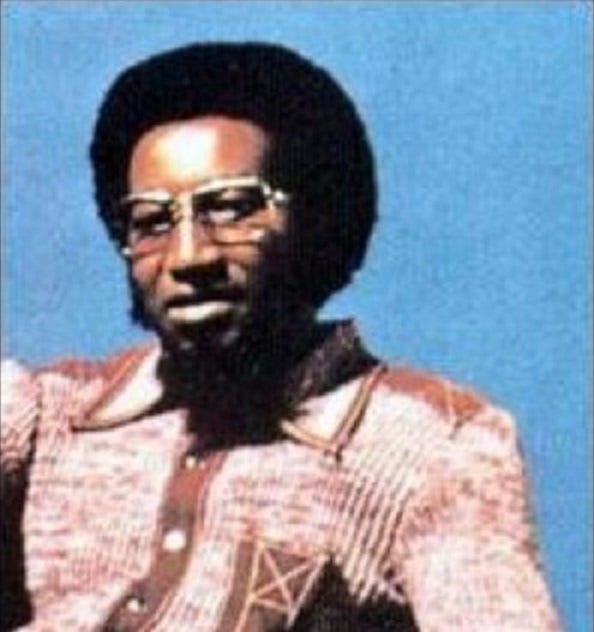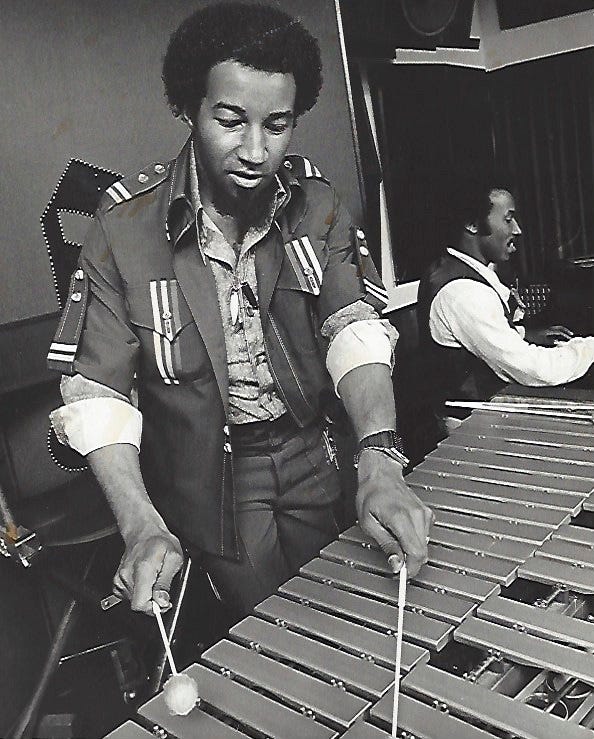Freddie Perren (May 15, 1943 – December 16, 2004) – Do It Baby (1974)
Banned for being too sexy, this Miracles jam was co-written and produced by the unsung musical genius who helped create some of the biggest hits of the 70s.
Watch full video on Twitter.
View most updated version of this post on Substack.
Legendary songwriter, arranger, composer and producer Freddie Perren was one of the four members of The Corporation, the Motown songwriting and production team behind the Jackson 5’s early hits, and co-wrote “I Want You Back.” He went on to write and/or produce many of the disco era’s biggest hits for artists including the Sylvers, Tavares, Peaches & Herb, and Gloria Gaynor, for whom he co-wrote and co-produced her all-time classic “I Will Survive.”
See our earlier post on Perren for more on his prolific musical career.
As part of The Corporation alongside Fonce Mizell, Deke Richards, and Berry Gordy, Perren co-wrote and co-produced most of the Jackson 5’s early songs. One unreleased J5 gem he wrote and produced in 1973 was “Would Ya Would Ya Baby.” Its very funky instrumental backing track was later issued as “Tryin’ To Get Over” (1975) on the DiscoTech LP, credited to The Magic Disco Machine. The full track finally saw the light of day on 2012’s deluxe Jackson 5 rarities compilation Come And Get It: Rare Pearls.
Perren married his wife Christine Yarian in 1970. The two of them co-wrote several songs together, including “Hallelujah Day” off the Jackson 5’s 1973 Skywriter LP, a joyous message song that alluded to the war in Vietnam finally winding down (“Somebody finally saw the light / They're gonna send our brothers home / It's gonna be alright”).
They also co-wrote the classic “It's So Hard To Say Goodbye To Yesterday” by G.C. Cameron. It appeared on the soundtrack to Cooley High (1975), featured in the film’s powerful cemetery closing scene.
He produced “Love Machine” (1975) for the Miracles, which went to #1 on the Billboard Hot 100 (despite only peaking at #5 R&B). Two years earlier in 1973, he had also produced their sensational, sexy jam “Do it Baby,” which he and Yarian co-wrote, a #4 R&B / #13 Hot 100 hit. Some radio stations banned the song for being too sexually suggestive, preventing it from going Top-10 on the pop charts.
As disco crossed over to mainstream audiences in the mid-70s, Perren co-wrote and produced some of the decade’s biggest dancefloor hits, including “Boogie Fever” (1975) by the Sylvers (#1 on both the R&B and pop charts); “Heaven Must Be Missing An Angel” (1976) by Tavares (a #3 R&B gold record); and “If I Can’t Have You” (1977) by Yvonne Elliman, which was written by the Bee Gees but produced by Perren for the Saturday Night Fever soundtrack and went to #1 on the Hot 100.
He also co-wrote and produced a pair of huge singles by Peaches & Herb, “Shake Your Groove Thing” (#4 R&B / #5 Pop) and “Reunited” (#1 R&B and Pop), both from the album 2 Hot (1978). For their 1979 follow up LP Twice the Fire, he co-wrote and produced “Roller Skatin’ Mate,” which was a superb roller disco jam despite only reaching #66 on the Hot 100.
Yarian explained Perren’s magic touch with disco hits to (New Jersey) Star-Ledger arts reporter Jay Lustig after Perren’s passing in 2004:
“He was an up-tempo guy. He thought all the up-tempo songs should have the heartbeat of somebody who was dancing, and he always checked his rhythms to that.”
Rest in Power, Freddie Perren.
Further info:
“Freddie Perren, 61; Wrote, Produced Disco Era Hits,” obituary, Los Angeles Times, December 22, 2004.
“Motown Producer Freddie Perren Dies,” obituary, Billboard, December 22, 2004.
“'I Will Survive' Saves Marginalized People a Spot on the Dance Floor,” by Karen Grigsby Bates, KQED, September 26, 2019.
#soul #funk #disco #Motown #FreddiePerren




